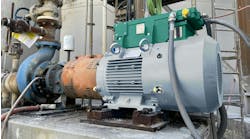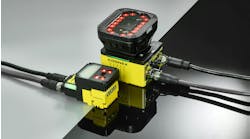With more employees living paycheck-to-paycheck, financial stress is contributing to substantial absenteeism and decreased productivity, according to a new survey by FinFit, LLC.
Highlights of the results include:
- 71% of survey respondents said that due to a difficult economy, significantly more employees at their companies are living paycheck-to-paycheck.
- 86% of respondents said financial stress among employees led to absenteeism, decreased productivity, and increased distraction in the past year.
- 78% of respondents said their companies do not currently offer any type of lending program to assist staff when they encounter emergencies. Nearly half believe a program offering financial education and support in the workplace would enable employees to be more productive.
“When speaking with other business owners in the area I’ve found that many have a measurable percentage of employees that are living check to check or just aren’t good with money, “ said Danny Kline, president of Payday Payroll services.
“We all care about our employees and for most small businesses, those employees are very much like family,” he added. “Unfortunately, most people are not comfortable speaking about their finances with their boss. Having problems making ends meet or experiencing financial pressures can lead to feelings of shame, guilt and frustration. These feelings are difficult to hide and often times affect an employee’s work. Whether it’s using company time to make phone calls and check accounts online or taking time off to meet with their banker, financial pressure in their personal lives spills into the workplace. In some cases, the stress can become so heavy, employees request leave in order to get their house in order.”
“When we began working with FinFit we had a surge of businesses sign up because it allowed the business owner to provide their employees the resources and help they so desperately needed. The program gives their employees access to budget tools, calculators, etc. as well as access to emergency funds if needed. Most importantly, they can access this information on their own time and without fear of any judgment as it’s done online, through their own secure logins. With their financial stress alleviated, employees are able to better focus at work and regain the confidence that comes with taking control of their finances.”
Other key findings include:
- 79% of respondents cited emergency healthcare costs as the top reason behind why companies should provide loans to employees.
- 69% believe employees at their companies would want to participate in a program that would help them pay for healthcare coverage premiums, deductibles, and co-payments, if it were offered.











